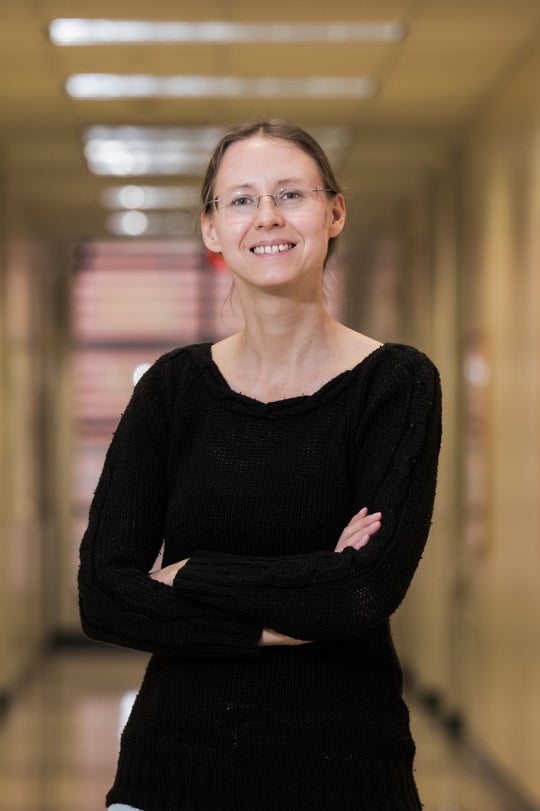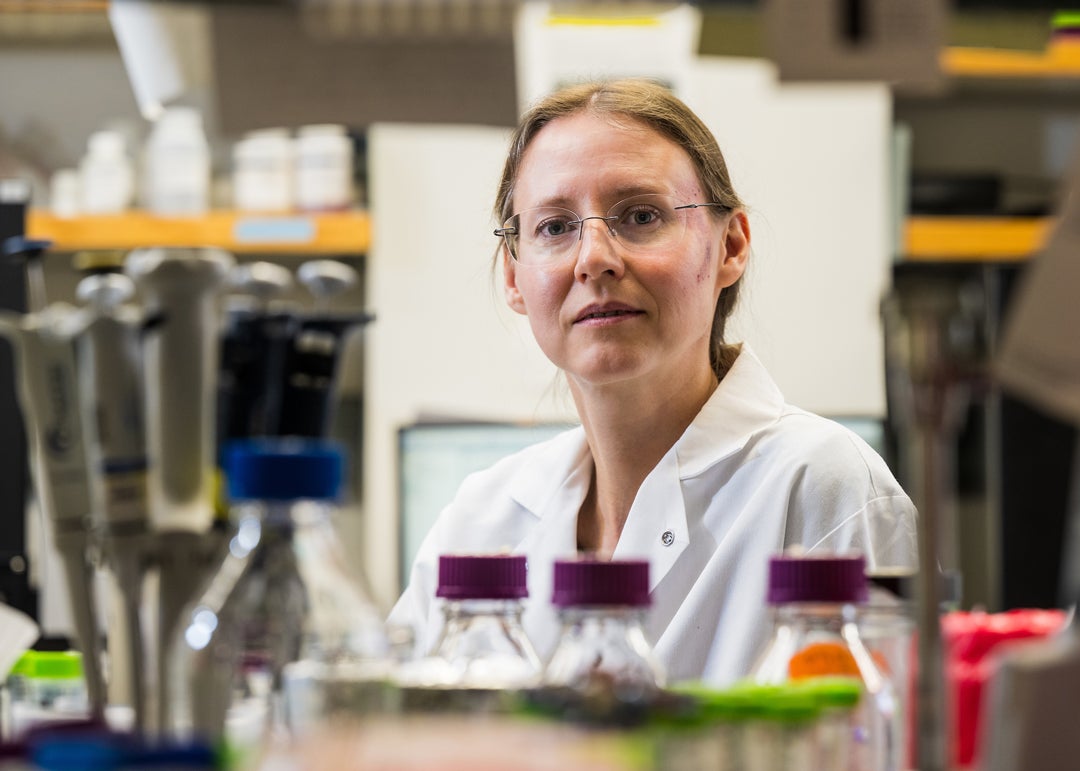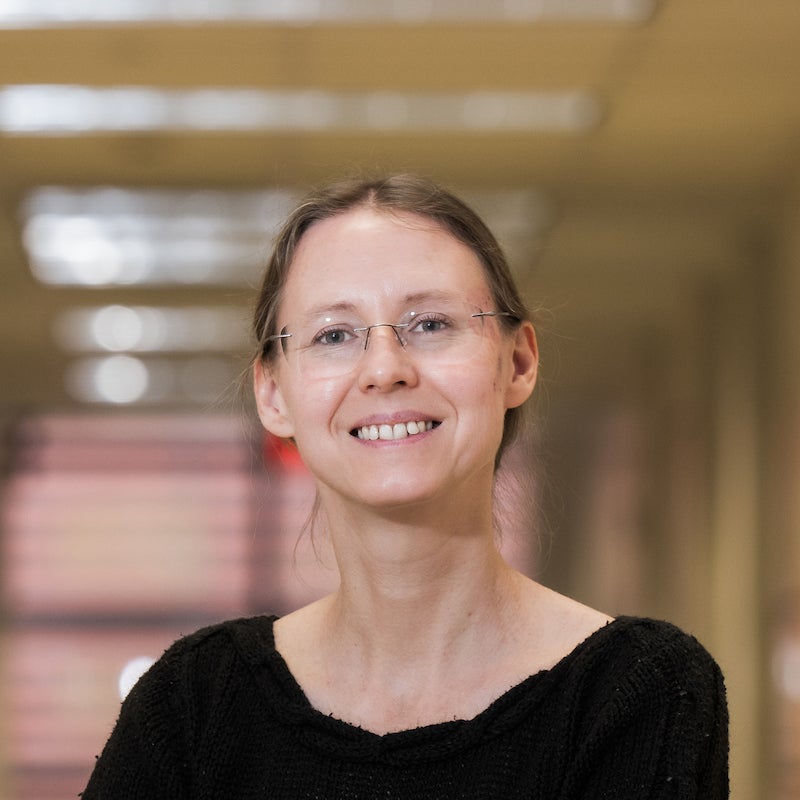
Mitochondria are the well-known “powerhouse of the cell,” since they produce the necessary energy to power the cell’s biochemical processes. It turns out, though, that they may hold the secret to new treatments for cancer and neurodegenerative diseases — and the work of Natasha Kirienko, an associate professor of biosciences, is taking us one step closer to unlocking these secrets.
Implementing the targeted removal of mitochondria in cells that have been damaged by cancer or neurodegenerative disease can cause selective cell death, she said, which has the potential to promote healing and reverse disease progression. Of particular interest are mitochondrial surveillance pathways, which are mechanisms in the surrounding cell that monitor mitochondrial function and health.
“I look for how mitochondrial surveillance pathways are activated and how they coordinate with each other,” Kirienko said. The pathways activate protective responses when mitochondrial dysfunction is detected. Studying the pathways can provide insight into how cancer attacks the body and how to then treat the cancer more effectively.
“There are types of cancers, like hematological cancers, that very heavily rely on mitochondrial energy production for their survival,” Kirienko explained. Hematological cancers affect the blood, bone marrow and lymphatic system, encompassing a broad range of diseases including leukemia.
Kirienko has found that leukemia cells “have slightly dysfunctional mitochondria,” a discovery that opens doors to different forms of potential cancer treatments. The fact that the mitochondria in leukemia cells are slightly dysfunctional enables Kirienko to treat the cancer in a way that takes advantage of cancer cells’ damaged mitochondria.

More specifically, through her research, Kirienko has found “small molecules that trigger mitochondrial recycling.” Also known as mitophagy, mitochondrial recycling is a cellular process that selectively recycles or removes damaged mitochondria to maintain cellular health.
The molecules her lab has discovered could be used to trigger mitochondrial recycling in hematological cancer cells, causing the cells to get rid of their mitochondria and die. Kirienko has already found that a number of these molecules “are efficient in killing leukemia cells.”
Kirienko also has methods to apply additional mitochondrial damage to cause cancer cells to kill their mitochondria, which would lead to cell death without damaging healthy blood cells. “This approach would allow us to kill cancer cells with a lower drug dosage, which would mean fewer side effects on healthy cells,” she said.

The approach could also be applied to neurodegenerative diseases, she said, and her lab is studying the role that mitochondria play in neurodegenerative diseases, as well as the impact of antidepressants on disease progression. Her team has found that some antidepressants, like Zoloft, have protective effects in experiments involving “neurodegenerative symptoms. . . such as in Alzheimer’s, Huntington's disease, as well as age-related protein aggregation.”
One of the ways Kirienko investigates the role of mitochondria in these protective effects is by studying mitophagy. When mitophagy is inhibited, Kirienko “no longer sees any protective effects from the antidepressant.” This strongly suggests that mitophagy plays an important role in providing this protection.
While antidepressants like Zoloft primarily act by increasing serotonin levels, Kirienko has found the “protective effects are independent of serotonin intake but are related to the mitochondria.” The research presents “a strong possibility that antidepressants can be repurposed as drugs to treat neurodegenerative diseases,” Kirienko explained.
Kirienko especially likes being able to pursue research in two different fields of medicine — cancer research and neurodegenerative disease research. “Science is flexible so we can explore different directions and learn new things,” she emphasized. “Science is not narrow, but a story that keeps developing, and as it develops, it takes you to new places.”
-Sophia Straus ’28

